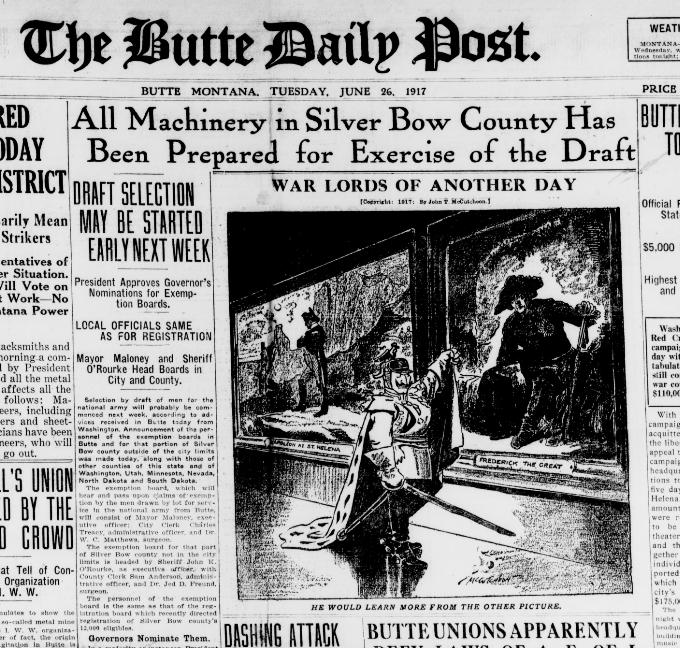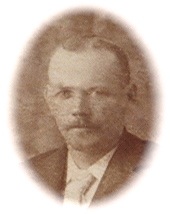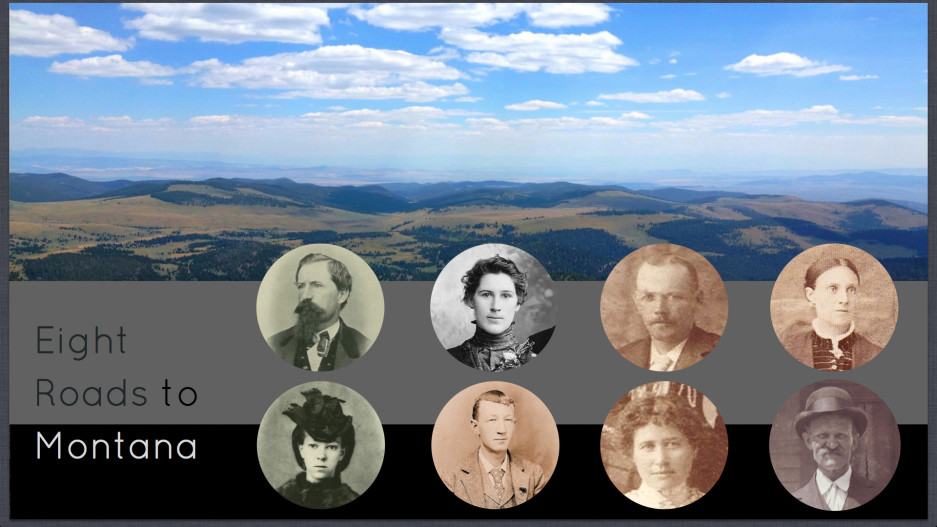All Machinery in Silver Bow County Has
Been Prepared for Exercise of the Draft

The Draft for WWI
When only 73,000 men volunteered to serve in the “national army” after the U.S. declared war on Germany on April 6, 1917, Congress passed the Selective Service Act. The law, which was passed on May 18, 1917, applied to all “male citizens, or male persons . . . who have declared their intention to become citizens, between the ages of twenty–one and thirty.”
The first draft registration day was held on June 5th. And so on this date in 1917, Silver Bow County was preparing to select men for the national army in preparation for U.S. involvement in WWI.
Claims of Exemption
One paragraph in this article from The Butte Daily Post that particularly caught my eye is transcribed as follows:
The exemption board, which will
hear and pass upon claims, of exemp-
tion by the men drawn by a lot for serv-
ice in the national army from Butte,
will consist of Mayor Maloney, exec-
tive officer; City Clerk Charles
Treacy, administrative officer, and Dr.
W. C. Matthews, surgeon.
The first candidates were to be drawn from Class I, defined as . . .
- Unmarried registrants with no dependents; and
- Married registrants with independent spouse and/or one or more dependent children over 16 with sufficient family income if drafted.
Candidates from other classes (there were five classes total) were only available for selection if all potential and available candidates in Class I were selected. According to the article, there were 12,000 men registered and available in Silver Bow County.
Quotas for each state were based on that state’s population. And although Montana’s quota had not yet determined, the article states that the eventual number would be “lessened by its excess of the regular army quota, resulting from voluntary enlistment and numbering nearly 200.”
My great grandfather

Of course I always think of my Irish great grandfather Joseph Kieron, who was 43 years old and lived in Butte on this date. He had a wife and two young daughters, all of whom depended on him for support. But life was not easy, as he bounced between jobs at the railroad and different hard-rock mines, in order to make ends meet.
Eventually, Congress did amend the Selective Service Act in August of 1918 to include all men between the ages of 18 and 45. However, I have never located evidence that Joseph ever registered for the draft — and thankfully for all concerned, the war was over in November 1918.
What’s your ancestor connection to WWI? I’d love to hear from you!

